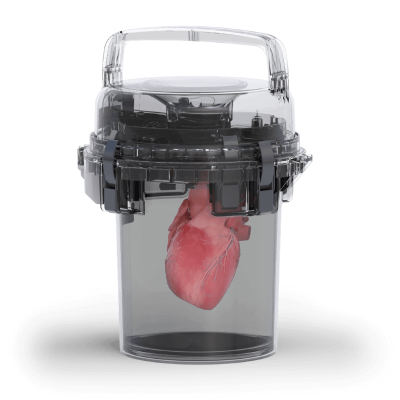
April 6, 2023 — Paragonix Technologies, Inc., a leading organ transplant company, announces new research from a multi-center study on transplant patient outcomes following heart transplant surgery. The study compared the use of the Paragonix SherpaPak Cardiac Transport System, an FDA-cleared and CE-marked donor heart transport and preservation device, to the use of conventional ice storage for LVAD patients undergoing heart transplantation. Presented at the 2023 American Association of Cardiology Annual Meeting (ACC23) on March 6, the study focused on short term post-transplant outcomes, and utilized data collected by the GUARDIAN-Heart Registry, the world’s largest clinical database specifically dedicated to heart preservation.
The US Multi-Center Early Post-Transplant Outcomes In LVAD Patients Analysis of the GUARDIAN Registry included 327 adult patients. The study compared outcomes of patients transplanted with hearts preserved in the Paragonix SherpaPak® and with conventional ice storage. The researchers also analyzed several known risk variables for severe Primary Graft Function (PGD), which have been the subject of decades of clinical research. The multivariable logistic regression analysis showed that the use of the Paragonix SherpaPak® CTS was associated with a significantly reduced risk of PGD (44% reduction, P=0.045), and severe PGD (69% reduction, P=0.009). 1 In addition, Paragonix SherpaPak® had the strongest effect out of all of the variables analyzed in the study, including recipient age and total ischemic time.
“The data suggests that this FDA-cleared device is an important tool for clinicians to reduce risk in heart transplantation. In clinical practice, we as clinicians are considering a multitude of recipient, donor and organ factors to ensure success of the transplant. It’s highly encouraging that this technology was found to have a strong positive effect on unpredictable, severe complications in heart transplantation for patients who are bridged to transplant with an LVAD“, said Dr. Joseph Lerman, Clinical Research Fellow at Duke Clinical Research Institute.
“This groundbreaking research has demonstrated that the SherpaPak® can be a tool for heart transplant surgeons to control the complications associated with high-risk heart transplant recipients. With each subsequent analysis of the GUARDIAN Heart Registry, now with over 1500 enrolled patients who have undergone heart transplantation, the data generated by the researchers continues to show improved clinical outcomes when utilizing Advanced Organ Preservation with the SherpaPak in a direct comparison to traditional ice storage,” said Dr. Lisa Anderson, CEO and President of Paragonix. “We are witnessing a paradigm shift in the standard of care for donor organ preservation, and we are thrilled to be at the forefront of that movement, providing every possible advantage for transplant patients.”
For more information: www.paragonixtechnologies.com


 July 31, 2024
July 31, 2024 









